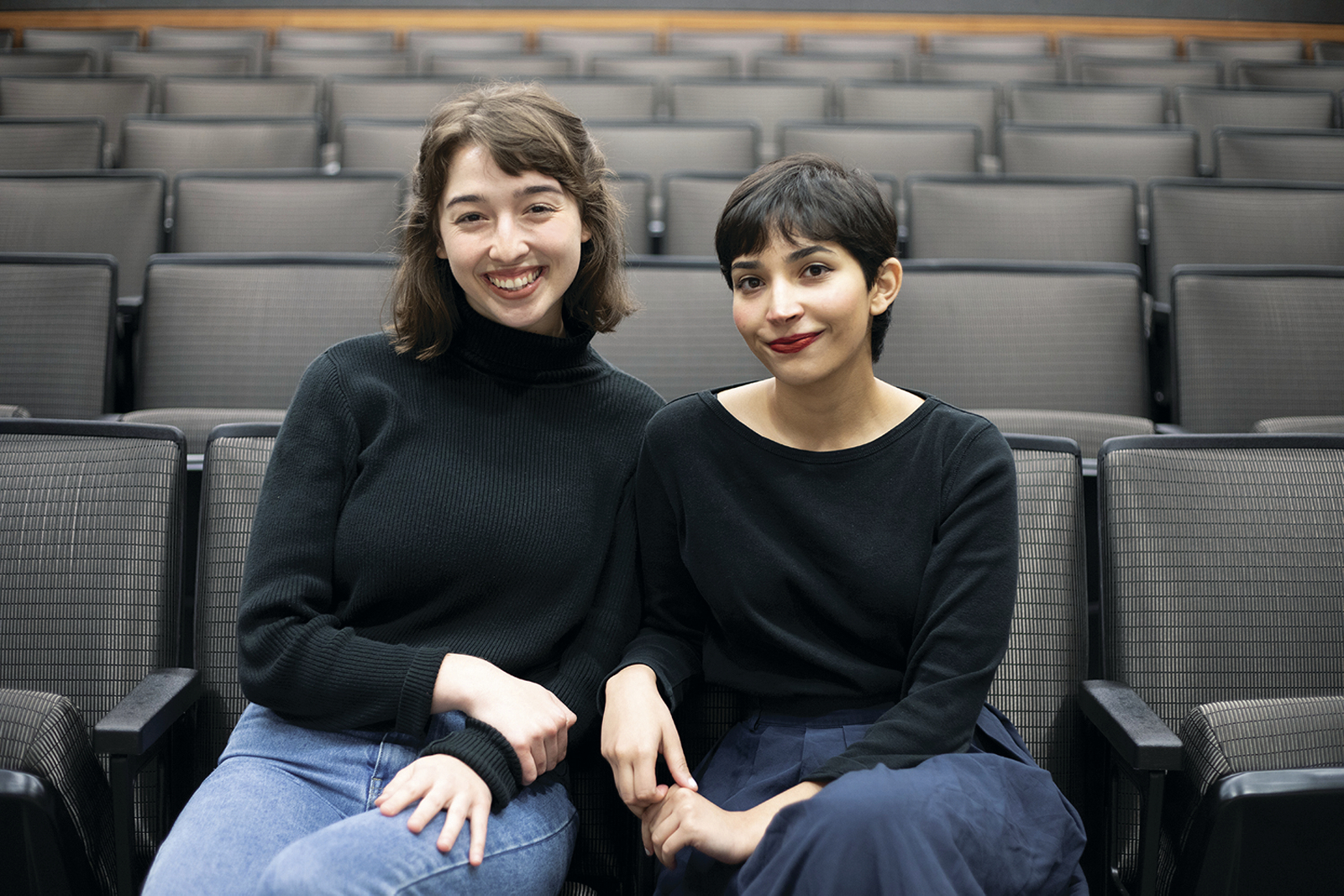Two Longhorns Revisit a 15-Year-Old West Campus Murder in New Podcast

In August of 2005, Jennifer Cave’s body was discovered in the Orange Tree Condos in West Campus. The primary suspect and a potential accomplice were soon discovered hiding out in Mexico. After a nationally covered trial, UT student Colton Pitonyak was sentenced—but it would take years and numerous trials for additional details to come to light.
Fifteen years after that brutal murder, Haley Butler, BJ ’19, and Tinu Thomas, BJ ’19, are reexamining the case that shocked Austin and shook the UT community in their debut true-crime podcast, The Orange Tree.
As students of the Moody College of Communication, Butler and Thomas regularly walked past the infamous apartment complex on their way to and from class. They had heard rumors about what happened there but didn’t know any details. In The Orange Tree, they combat the campus rumors and dig deeper to sort fact from fiction and tell the whole story—of Cave’s life, not just her tragic death.
The seven-episode podcast explores the months leading up to the crime; the night it happened; and the following years of trials, confessions, and legal obstacles, featuring interviews with almost all the key players involved, including the first-ever interview with Pitonyak. Produced during the spring 2019 semester while Butler and Thomas were still enrolled at the Moody College of Communication, the podcast launched on July 14 to instant success, quickly spreading throughout the UT community and inching up the podcast charts.
The Orange Tree peaked at No. 24 among all podcasts, a significant feat for any debut and a monumental one for a student-produced podcast. The majority of its 2,000-plus reviews in the Apple podcast app offer five stars, and praise the hosts for their sensitivity, professionalism, and storytelling. A partnership announced in September with Dennis Quaid’s podcasting network, Audio Up, and a promo for The Orange Tree narrated by the actor himself, suggests the podcast’s buzz is only growing.
Unlike many true-crime podcasts that dwell on sensational, sordid details, Butler and Thomas were careful to avoid cherry-picking the most shocking facts and instead spent time exploring what Cave was like. The same age as Cave at the time of her death, 21-year-olds Butler and Thomas related with their subject, which informed their efforts to avoid any form of victim-blaming. “You forget crimes like this can happen to you or could happen to your good friend or could happen to your sibling,” Thomas says. “What we wanted to show here is that this crime really could’ve happened to us; it could’ve happened to anybody.”
Before their recent celebrity among true-crime podcast aficionados, Butler and Thomas were fans of the medium. In 2019, they were the first hires for The Drag, a new podcast production house for UT journalism students.
Robert Quigley, an associate professor and the school’s innovation director, started The Drag in hopes of establishing UT as the predominant podcasting school in the country. Using funds from the Dallas Morning NewsInnovation Endowment, Quigley hires student workers and full-time professionals and offers a 25-person capstone class each semester.
While podcasting has existed since around 2004, it entered the zeitgeist in 2016 with the groundbreaking true-crime investigative series Serial. Quigley says while podcasting is still the Wild West of journalism, more publications and companies are realizing the power of the medium, making it an essential skill for journalism students to learn.
“I want people to go, ‘I’m really into audio storytelling, I want to be a podcaster, I want to work for NPR, I have to get into the UT J-school.’ That’s my ultimate goal,” he says.
After choosing the Orange Tree murder as the subject of The Drag’s first long-form podcast, Butler and Thomas faced a mountain of work. They spent the summer of 2019 interviewing sources, reading through archival media coverage, and slogging through legalese. During the fall, they wrote scripts and, in 2020, began recording and editing episodes. COVID-19 threatened to derail the project, but they were able to finish recording in the KUT studios through The Drag’s partnership with the local NPR station.
“I was a journalist for 16 years and I was an editor for most of those years, so I’d worked with a lot of reporters, and I sat there [during one of their interviews] and thought, ‘These two get it,’” Quigley says. “They were asking fantastic questions, they were cool, they didn’t look nervous, they were not fumbling through their notes, they were just so professional and so on it and so confident.”
Quigley expected the podcast to take off, but Butler and Thomas never thought it would go further than their immediate UT community. The fact that they now have fans around the country is just the cherry on top of a personally rewarding project. Butler says the best reviews are from moms who relate to the mothers of Cave and Pitonyak, both featured in emotional interviews throughout the podcast. The humanity of the podcast shines through these interviews and centers the horror of the crime not on the sensational details but the grief these families still hold.
Cave’s sister ends the final episode in tears, remembering all the memories the sisters will never share, a poignant reminder of Butler and Thomas’ message that this could be the story of your sister, your friend.
“I think the way the story was reported in 2005 and 2007,” Butler said, “you forget that these kids are kids.”





